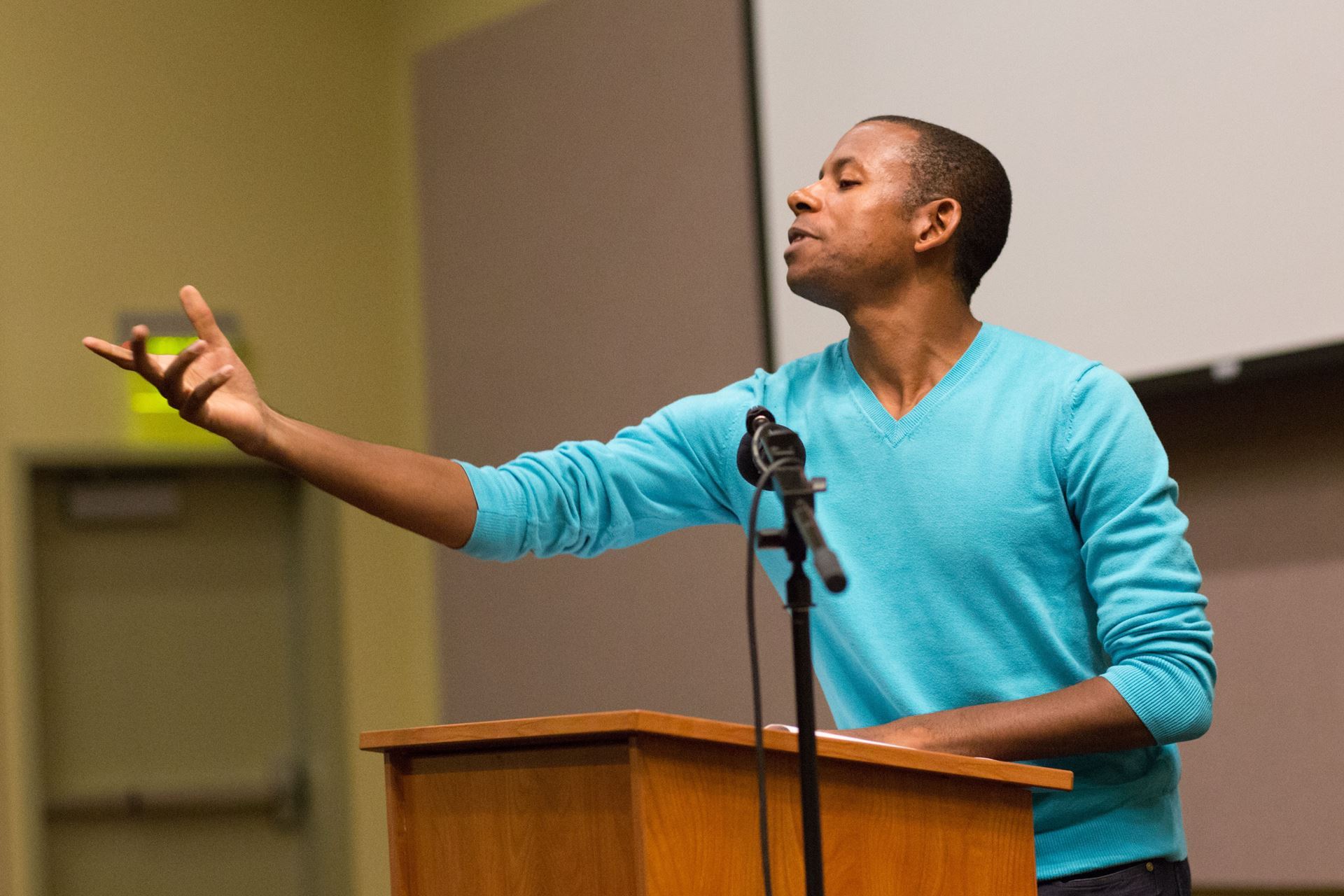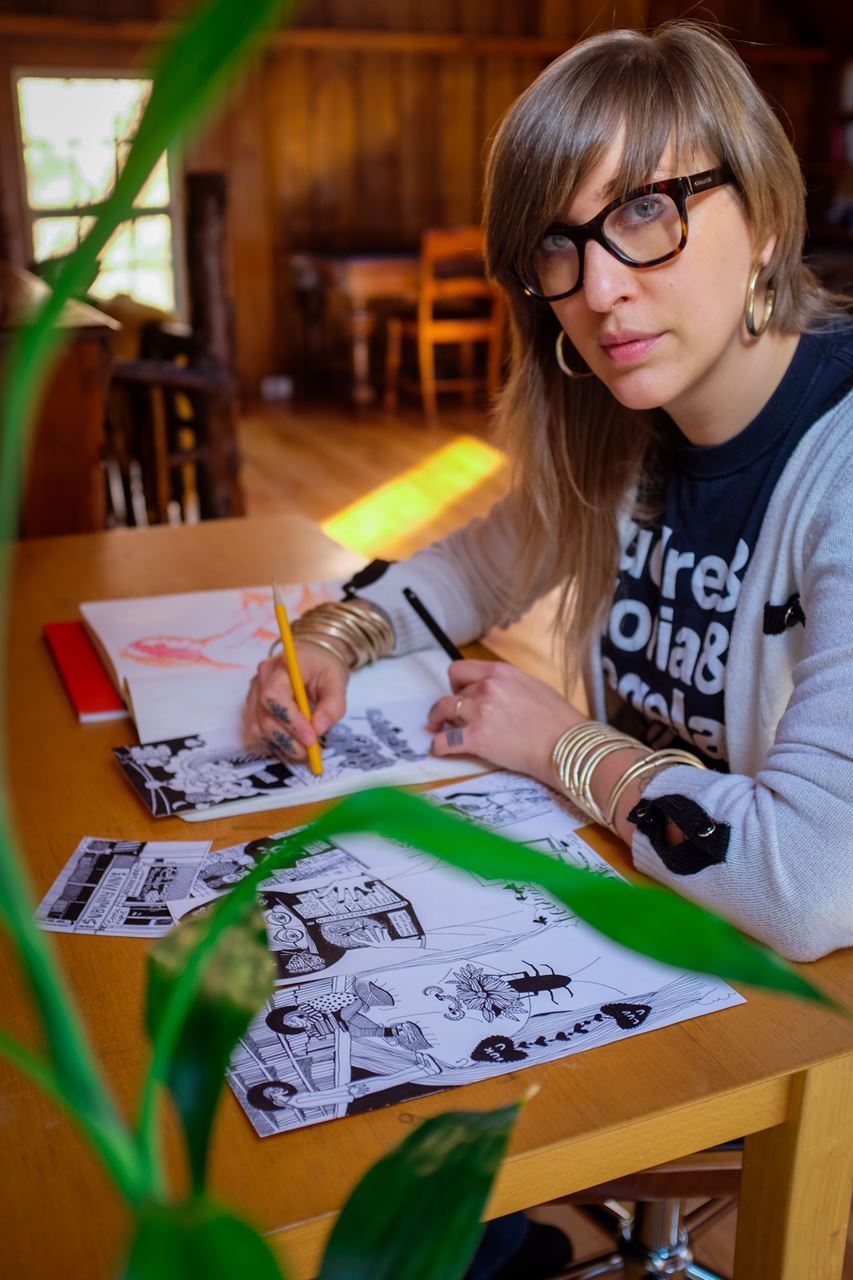What Is Transformative Language Arts?
Transformative Language artists envision a merger of the the language arts with individual and collective liberation: writing, storytelling, theatre, and music can work towards community-building, cultural and ecological restoration, and personal development. Transformative Language artists, scholars, facilitators, and consultants facilitate creative and language arts in many venues, including community centers, schools, prisons, health centers and hospitals, businesses, research facilities, and retreat centers. The following are real-life examples of TLA, used by permission:

- A writing/mentoring group composed of at-risk teenage girls and elderly women meet bi-weekly for eight months to write about their lives. The writing is the medium by which the older women mentor the girls, and by which the girls pay homage to the lives of the older women.
- A weekend workshop on songwriting as a path for connecting with the earth also incorporates into it the building of a stone labyrinth. The workshop ends with a celebration, featuring the performance of each participant's new song, sung by all participants around the labyrinth just constructed.
- An intergenerational (ages 8 to 87) group of Latinos meet all day every Saturday for a month to write about their lives, sponsored by various organizations and businesses in the Latino community, a local writing center, and a state humanities council. By the end of the sessions, the participants have decided to publish an anthology of Latino Stories, hold readings in the Latino community, and work to get local media to pay more attention to Latino concerns expressed through the arts.
- A group of neighbors united against a major freeway being built through farmland, woodlands and homesteads gathers to tell stories of how this freeway would destroy their way of life, and through the telling of their stories, gather courage and direction for fighting the new development.

TLA is inherently egalitarian for most of the population in this very literate society. It's also egalitarian economically since writing, speaking, telling stories and singing are activities available to most people, regardless of their circumstances.
The roots of all cultures sink deeply into the oral tradition, from which come all the modalities and expressions of TLA Examples of TLA can be found in cultures around the world — from the talk therapists who incorporate journal writing into their work with clients, to tribal songs to pass on traditions. The cultural differences, however, in how TLA is manifest are wide, and it's important for people studying TLA to understand that not all cultures favor self-disclosure as a means of personal growth. Indeed, the very ways that "growth" or "transformation" are defined vary deeply among different peoples, and even within communities.
In the last few decades, the theory and practice of TLA has grown in many areas:
- Songwriting has a long traditional thread that focuses on social change and personal transformation;
- Narrative Therapy, a modality in psychology/counseling, uses personal storytelling in the healing process;
- Narrative Medicine, which emphases the importance of examining our stories about health and illness, is gaining momentum in and beyond the medical commmunity;
- Theater movements such as Playback Theater, Ecotheater, and many other approaches use the stage for social change, and break down the barriers between performer and audience;
- The wide-spread emergence of memoirs and self-help books on the writing process speak to our culture?s strong need to find meaning through our stories;
- Poetry/Biblio Therapy recognizes the poetic power in language to bring about healing and growth;
- Drama Therapy and Psychodrama honors the power of storytelling and dramatic presentation in therapeutic venues;
- Storytelling organizations, including therapeutic storytelling groups, have grown in all venues in recent decades;
- Storytelling, writing and drama for personal and social change have also found their ways into many social institutions, such as law (through transformative mediation and other means), business, education, medicine, etc.
 TLA
embraces all these inroads in addition to new and emerging paths. The
growth of TLA as a movement and academic field is having, and can
further catalyze, profound effects on our culture, such as exploring how language can begin to break through cultural, political
and historic agendas, and through the personal fear, rage and despair
that disempower individuals and communities.
TLA
embraces all these inroads in addition to new and emerging paths. The
growth of TLA as a movement and academic field is having, and can
further catalyze, profound effects on our culture, such as exploring how language can begin to break through cultural, political
and historic agendas, and through the personal fear, rage and despair
that disempower individuals and communities.
TLA seeks to preserve the richness and diversity of language itself, and the intimacy of human-to-human contact in an increasingly technological age.
Read more about TLA in The Power of Words: A Transformative Language Arts Reader, edited by Caryn Mirriam-Goldberg and Janet Tallman, published by the TLA Network as the landmark collection on TLA in theory and practice. Also see Transformative Language Arts in Action, edited by Ruth Farmer and Caryn Mirriam-Goldberg, published by Rowman and Little.
